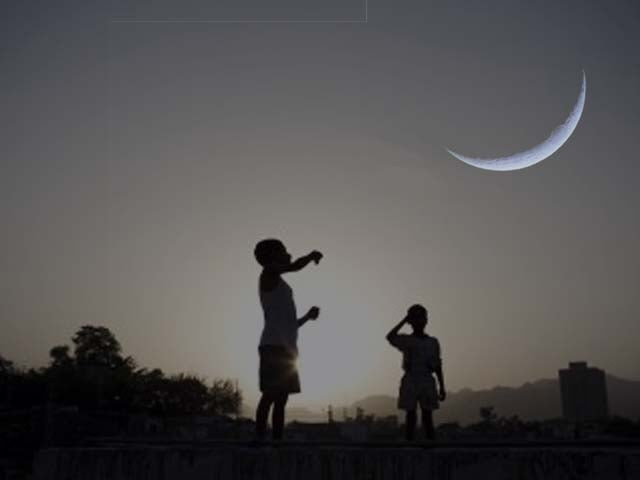Sometimes he thought his business was not really selling ice but buying time. And the sun was the vendor. The greater the sun’s heat, more the customers, but also greater the probability of the ice melting. Profit, loss. Loss, profit. On the hottest days, people flocked to him and in Ramazan, he naturally became the most important person. For those few hours, at least. He could ask them (almost) any price, and they didn’t look twice at the money. They always looked at the ice and it quenched them.
It cooled their worries and froze their anxieties, turning them into a solid that they could throw against the wall. Or drop from their second floor flat. Or laugh at, seeing how immobile they were. And how strange anxieties looked, trying to mix with each other but held separately from their collars.
He smiled, not at these ridiculous thoughts, but at the sight of Sajid and Habib walking towards him; people he could pour out such thoughts on, people who looked forward to such downpour. Yaar was the only word that came close to summing up his feelings. Somehow hearing and saying this word, Yaar, he was confident he could easily tuck his friends in between the letters. Probably in the space between the two a’s. Where they would sit cross-legged, legs dangling inside those open circular spaces.
Sajid and Habib waited silently on the side as Amir finished up with his day’s work. He did not hurry his tasks. He did not have to. You only had to hurry when those waiting wanted to be somewhere else. Once he was done and the customers had dwindled out, the three of them sat cross-legged on the stools next to the wooden table with the ice slabs. Habib, as always, had a small diary in his hand. His only possession. The only one he desired. Habib often read out extracts from his diary; at odd moments and at normal ones. He treated time and space as one treats the sound of traffic. Indifferently. Speaking on top of it. Drowning it out nonchalantly. Sajid and Amir both enjoyed hearing his words, but Amir was extremely curious to get his hands on Habib’s diary. But Habib had never offered. And Amir never asked.
“How was work, today?” Sajid asked.
“Going better these days. The sun is a huge help. How was yours?”
“It’s going down. No one seems to buy newspapers these days. People either have stopped reading or they use their phones to read the news. The sun has been helpful to some extent though, since some buy the papers to protect themselves from the heat.”
“I would have done that.”
“I know. I do, too. Also, did you hear, this Ramazan, they banned people from eating in public and imposed a fine.”
“Yes, I heard.”
Amir looked towards his ice slabs. He had covered them in multiple cloths, each of which was becoming slightly dirty. He knew he had to change them tomorrow. Despite the coverings, he could feel the ice melting. He could hear the ice molecules moving, vibrating and gradually that sound of them… breaking loose. The wooden table underneath was becoming moist. And from that moistness, a droplet began its journey downwards to the ground.
“Look,” he said, pointing at the hexagonal ground tiles.
The water entered the maze; moving forwards only when another drop came by to accompany it on a familiar journey.
On the bottom of this staircase, a bird waited with its mouth slightly open. Slightly, since it acknowledged the patience of the task (the melting process, dropping journey, and the movement on the rungs of the staircase) but not enough to satisfy that hunger. As the friends watched the bird waiting for the water to arrive, their throats became even more parched, and Amir laughed,
“I wonder about the day a politician or a government official sees this scene. How long would it then take for them to announce: ‘From this day henceforth, no birds are allowed to drink and eat in public’?”
Sajid laughed, “And what would be their punishment?”
“Maybe send them to a zoo? Run a media campaign against them. But the bigger question is, how would they ascertain which bird is the culprit?”
“They would need to know about birds to distinguish between them. And if this law increases knowledge of birds, then is it really bad?”
They both smiled, not at the absurdity of these thoughts, but the comfort in sharing them. Amir looked at Sajid’s left hand. The ice in his shaupar (plastic bag) had almost completely melted. The shaupar was sagging and it made a perfect frown from the edges.
He knew it was time for Sajid to go. He was glad that he had never asked about the shaupar, or why Sajid bought ice only to wait for it to melt. But someone else had, once.
It was a very similar day. An hour before iftari, someone had come to buy ice and had barged into their conversation, not seeing the dozens of doors that they had set up.
As Amir picked up the ice prick to cut the ice, the man had stepped closer to Sajid,
“Sir, the ice in your shaupar has completely melted.”
Sajid had smiled. And that slight lift of the cheeks, and those wrinkles that stretched out from his eyes, had been mistaken for a lack of finances. And an invitation to be helped had somehow transferred or been perceived to transfer.
“I can buy the ice for you.”
There had been no pompousness in the man’s voice. But Sajid looked and shook his head, and the man was surprised not at the refusal but at how naturally it came, and left him wondering about who the needy was.
The man gave an embarrassing smile and left with his ice.
Amir fumed,
“How dare he assume that you need his help?”
“It’s not his fault. He was sincere. It’s the norms around him that have trained him to look upon himself as the provider and the others as the provided for. It comes naturally when something is practiced for decades and goes unquestioned.”
Suddenly, Habib spoke, diary in hand,
“To look at people as they come. To see what they bring with them. On their faces. In their eyes. In the emptiness of their pockets. On that loose thread protruding from their wallet. To separate them from what you want to see in them, as a snake sheds its skin and to use the ice to smooth out the crease. On their clothes, on their foreheads.”
He stopped reading, just when Amir wanted to hear more. He looked again at Habib’s diary. Someday, he thought to himself, when Habib is distracted.
_______________________________________________________________
“Sajid, have you seen children look at the ice?”
“No. But I have seen their expressions when they pick up my newspapers. And I mean those children who live and work around my shop, for whom the language on the newspaper is an alien one, with different shapes, and sizes. With dots, circles, and strange straight lines. And what bothers me is that they smile, wishing they knew. But soon forget about it. Children hardly have time to be angry over not knowing. They are content, Amir, because they don’t know who to blame or whether not knowing is even a crime.”
Amir listened. And he listened as if each sentence was an event by itself.
“I don’t know,” Amir finally said, “I feel like children are quite wise. I am fascinated each time a child stands in awe, looking, staring at a big slab of ice. And seeing it melt, seeing it disappear, and seeing its disappearance not being talked about sets in a strange understanding that only children comprehend.”
Habib, who normally only stared at his diary, had given him a smile. Or a semblance of a smile. He got up and began to leave. Amir knew he had to test his luck.
“Habib, could I see your diary?”
Amir expected resistance. A polite refusal. A shake of the head. Raised eyebrows. A small, sagging frown. But nothing. He handed it to him. And left.
Amir was ecstatic. He opened the diary. Flipping one page after the next, taking his time on each page. After some time, he finally put it away. It was empty. Just as he had expected. Whatever his friend ever spoke was not written anywhere. And maybe it was better this way, he thought, maybe good writers never (chose to) write their best lines. Amir stayed silent and the silence hovered comfortably between the two friends to and fro, to and fro.
“Why did Habib leave early today?” Amir finally asked.
“It’s Chand Raat. He would want to be with family.”
As Sajid said that, he immediately regretted it. In a moment, each word and its implications was jibing at Amir, brushing against him, scratching his skin, and forcibly opening the lid from the past. And so Sajid got up to take his words back, and not knowing this exercise, he ended up embracing Amir. But something was amiss. Amir somehow felt this embrace did not signify a goodbye.
“Would it be okay if you spend tomorrow with us?” Sajid asked, ensuring the question was purely that, a question, without any sign of suggestions or insinuations.
And Amir looked again at a man who was offering him a choice, knowing fully well that he had nowhere else to be. And that offering of strength, of the ability to choose, made his face break into a smile. A mild one.
“Haan yaar.”



COMMENTS
Comments are moderated and generally will be posted if they are on-topic and not abusive.
For more information, please see our Comments FAQ